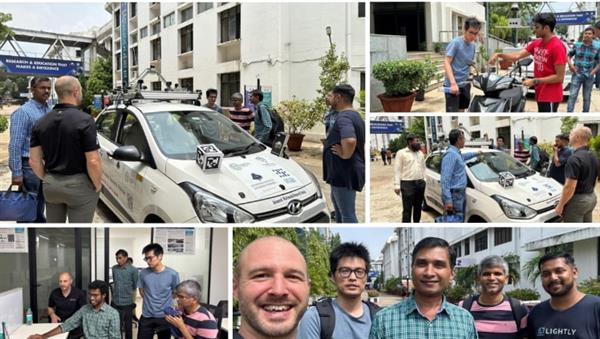IIIT Hyderabad is driving the development of smart mobility solutions to enhance transportation safety and efficiency.
Dr. Ravi Kiran Sarvadevabhatla from IIIT Hyderabad outlines the institute’s innovative mobility solutions aimed at addressing transportation challenges in India.

Dr. Ravi Kiran Sarvadevabhatla, Associate Professor at IIIT Hyderabad (IIITH), highlights several mobility-focused innovations developed at the institute to tackle challenges in the Indian transportation sector.
The growing impact of artificial intelligence (AI) on various industries, including education, healthcare, manufacturing, and transportation, has led to significant advancements. While autonomous vehicles have garnered much attention, the mobility sector is expanding with diverse applications. The i-Hub Data Center at IIITH is actively conducting interdisciplinary research to address key mobility-related challenges. One of its major initiatives focuses on identifying abnormal traffic patterns and violations such as helmetless riding, triple riding, and wrong-side driving. Traditional systems use CCTV cameras at intersections to detect such violations, but their fixed nature reduces their effectiveness due to the lack of surprise. To overcome this limitation, IIITH has utilized Bodhyaan, an advanced research vehicle equipped with multiple sensors, to capture real-time traffic data. This mobile system records videos of violations, categorizes them, and makes the footage available to authorities for generating fines.
To tackle the prevalent issue of wrong-side driving by two-wheelers, IIITH has implemented a distributed system using dashcams mounted on city cabs and buses to capture traffic footage. This approach ensures data collection across the city, adding an element of unpredictability while reducing reliance on static cameras. The recorded videos are analyzed to identify violations, which are then used to issue challans. Additionally, a similar platform to Bodhyaan has been developed for two-wheelers to enhance safety. This platform incorporates technologies to detect falls, assist riders, and create smart helmets. It also tracks riding behavior and generates riding scores, which could potentially be used by insurers or dealers to reward safe driving with discounts or adjusted premiums.
In partnership with multiple research centers at IIITH, a project was launched to automate infrastructure assessments using drones. Traditional manual methods of evaluating building safety involve measuring parameters such as height, window count, and roof load. The new drone-based approach uses computer vision to automatically collect this data, significantly reducing the time required for assessments. The software created for this process is designed to be user-friendly, so non-technical personnel can operate it.
Another initiative focused on evaluating tree plantation success by measuring tree density in specific regions. A two-wheeler equipped with a GoPro camera and GPS was used to gather images and geolocation data. This information was compiled into a dashboard that visualized tree cover across various areas. A similar method was employed to map city potholes, with the results displayed on a dashboard to aid in road management.
The Intelligent Solutions for Road Safety Through Technology and Engineering (i-RASTE) project, which began in Nagpur and later expanded to Telangana, seeks to reduce road accidents using AI. Advanced Driver Assistance Systems (ADAS), along with dashcams, were installed in city buses to monitor driver behavior, potential collision risks, and road conditions. This data was combined with road safety training for drivers, resulting in fewer recorded alerts and accidents.
The i-Hub Data Center, established as part of the National Mission on Interdisciplinary Cyber-Physical Systems, is dedicated to developing scalable solutions for mobility challenges. With a focus on real-world deployment, the center ensures that research projects progress from prototypes to practical applications.